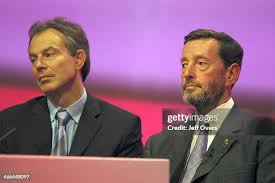
Introduction
Tony Blair, the former Prime Minister of the United Kingdom, is a figure who still evokes both admiration and criticism in contemporary politics. Serving as the Labour Party leader from 1994 to 2007, Blair’s legacy includes significant reforms in public policy as well as his controversial decision to involve the UK in the Iraq War. His insights and perspectives continue to shape discussions around governance, foreign policy, and the role of leadership in a rapidly evolving world.
Blair’s Legacy
During his time in office, Blair advocated for a “Third Way” approach, combining traditional centre-left policies with market-oriented reforms. This marked a pivotal shift in Labour’s ideology, ultimately leading to three consecutive electoral victories. Under his leadership, key advancements in health, education, and social justice were implemented, creating a lasting impact on British society.
However, Blair’s legacy is not without its shadows. The decision to support the U.S.-led invasion of Iraq has continuously drawn scrutiny, leading to long-standing debates about the ethics of interventionism in foreign sovereignty. In recent years, polls indicate that while some appreciate Blair’s economic policies, public sentiment remains divided on his foreign policy actions.
Recent Developments
Currently, Tony Blair remains an influential voice in global affairs. His work through the Tony Blair Institute for Global Change focuses on issues such as climate change, political polarization, and the role of technology in governing. His commentary on the COVID-19 pandemic has also resonated with leaders around the globe, urging a re-evaluation of health systems and infrastructure to better prepare for future crises.
In light of the current geopolitical climate, Blair has been vocal about the need for cohesive international relations, stressing the importance of multilateralism as conflicts arise across the globe. He participated in numerous discussions on platforms like the BBC and international forums where he advocates for collaborative solutions to complex global issues.
Conclusion
As Tony Blair continues to influence modern politics, his strategies and philosophies on leadership and governance are increasingly relevant. The conversations he sparks regarding democracy, conflict resolution, and development shape not only current political discourse but also inform future generations of leaders. Observers and policymakers alike should consider his experiences and insights to navigate the complexities of today’s world effectively. Blair’s career serves as a reminder of the enduring impact of political leadership, and the necessity for thoughtful decision-making in both domestic and international contexts.
You may also like

The Evolving Role of the Manager in Modern Business

Understanding the Current Political Landscape in the UK
